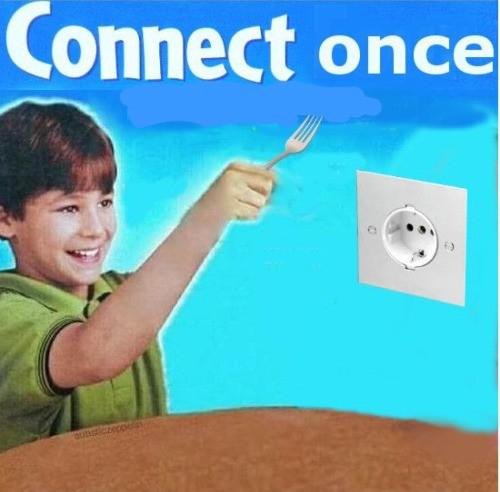I’m curious what users feel makes a great sci-fi story. What elements do you feel “make or break” the story specifically where sci-fi is concerned? For me, I really enjoyed the Expanse series, as it feels like there’s a sort of “believability” to it all. The authors make everything seem very realistic, even if some of the descriptions and physics are made up.
What is it about your favorite sci-fi books and shows that make them your favorites?
Strong world building. No matter how farfetched the technology/society/species, if there is enough backstory or precedent anything is believeable. For example, Isaac Asimov’s robots aren’t realistic at all but he starts by laying down a set of rules (three laws of robotics)and wrote entire books worth of stories detailing their development. This not only allows readers to suspend their disbelief and accept that sentient robots exist but gives context and relatability to all of your characters/events/locations. The Expanse acheived the same by simply rooting it’s fiction deeply in reality which makes it inherently relatable. The rest is normal storytelling.
I particularly enjoy sci-fi that explores philosophy using various archetypes that can’t exist yet without some advance in texhnology, or explore society by taking certain aspects to their logical extreme.
Blade Runner is a good movie example of the former. It explores the nature of humanity, consciousness, and “self” using advanced synthetic beings. Children of Time is a book example that explores evolution, religion, and more.
GATTACA is a good example for social exploration: eugenics, and morality. Children of Men is another good one: what would happen to society if we saw the end of our species in the near future.
Other books I’ve enjoyed along those lines: XX, Left Hand of Darkness, Three Body Problem (all 3 books). Other movies: District 9, Ex Machina, WALL-E, The Matrix.
I completely agree with this take. Good sci-fi examines and questions what it is to be human.
I get the enjoyment of the alt-technology focused works that are more of space engineering thought experiments. Those Weir-esk books are totally valid, and I enjoy them enough, but I really think the works that will stand the test of time are those that present worlds with different circumstances and examine humanity in that context.
I’ve read a lot of Philip K. Dick and enjoyed them, even though some are waaaaay out there, but he has a real gift with writing that I don’t think many can emulate as well and still get the point across like he can. I’ll definitely add the others you’ve mentioned to my lists!
Cool!
XX takes some time to get going, but it pays off.
Good sci-fi, to me, is an idea or concept that makes you wonder and think “I never thought of that.” It’s good sci-fi, to me, if I find myself thinking about the ideas and concepts when NOT actively reading the book. It’s about an idea that sounds plausible, not just complete BS. Like half truths with half fiction.
I agree that plausibility plays a huge part. Even though it’s sci-fi, I think it helps when we can imagine the story actually happening, even if it’s highly imaginative and “far-fetched” for reality as we know it.
Starting with a world and rules for that world and allowing the various entities to intelligently work with those rules. As opposed to starting with a story and plot and then ignoring things that would complicate or defeat that plot.
Star wars ep 8 is an example of that second one. If you could destroy ships by just ramming them with another one at light speed, then there would be a ton of weaponry based on that, probably even being a great equalizer that prevented any kind of empire from growing too powerful because any concentrated power would get hit by asteroids with light speed propulsion and navigation systems strapped on. Not to mention the numerous tactical errors made and them somehow immediately guessing the weakness of a brand new tech they had only heard rumors about prior to it being deployed against them.
I think part of what made the Expanse so great was that they followed this. Those rules happened to be similar to the ones we have (ignoring the alien advanced tech stuff).
Star Trek is another example of world first, then plot within that world.
Even more comedy style stuff like Douglas Adams and Terry Pratchett do well with that, where they have rules thrown in for humour but then still figure out how to make the plot remain consistent with those and allow propagandists and antagonists to play intelligently by those rules.
I hate it when the question “why didn’t they just do instead?” is answered with “it’s just a story, don’t think about it too much”. It’s just lazy/shitty writing and producers that don’t really care and just want their paycheck IMO.
Most people I’ve talked to tend to disagree with me here, but my favorite type of book is one that focuses primarily on the fictional science rather than the characters. It’s interesting how the main focus of most science fiction is not fictional science, but I suppose most people read stories to hear about the people in those stories. Personally, I don’t care too much about how people think or what they want. I want to hear all about your wildest techno babble as others have called it. Anything that is fascinating to ponder, but of course the more it makes some type of sense the better. Characters to me are more like a necessity to move a story forward and to see it from a perspective that makes sense. They are simply a camera lens into the world I want to hear about.
For me it’s kind of both. If a book has flat, boring characters, I can still enjoy it if it has interesting fake science and/or worldbuilding. And a book with iffy worldbuilding can still be a gripping read if the characters are done well. The best books have both. But they do need to have one or the other.
I wonder if this is why I haven’t enjoyed Dreaming Void or Pandora’s star as much as I thought I would. The focus definitely seems on the characters more than the world/science.
Meanwhile some of my favorite books involve exploring new worlds and delving deep into what they’re discovering: Aurora, Rendezvous with Rama, Long Earth, and the like.
I’m the same. I like hard science fiction. Or hardcore science fiction. You bend a few rules. But then you take them to their logical conclusions. The story and the people are used to demonstrate what this thought experiment does to the universe.
I’ve especially enjoyed Larry Niven’s books, he has this very hardcore science approach.
For me it’s mostly the same as other genres - characters, great character development. World building. Storyline. Probably in that order.
My favorite sci fi books may actually be Neal Asher’s space operas. The Prador are so scary and so well described, the AIs are also imaginative and well thought out, everything is so good. Love William Gibson’s books too, the way he takes a few different stories and pulls them together is so cool. Neal Stephenson is hit or miss for me but mostly hit - he knows how to write engaging prose. But I think my favorite author may be Ian McDonald because his stories are beautiful, I fall into the worlds he writes.
If you liked the Expanse you might be interested in Kim Stanley Robinson’s Mars series, and for the same reasons.
As for your original question, for me the important part is good writing and story telling. Some writers’ styles just turn me off no matter how good or important the work is. Narrative style is what makes or breaks a book for me no matter the genre.
I will add Kim Stanley Robinson’s Mars series to the list then, for sure! I agree about the writing styles. I feel like sometimes authors seem to have the assumption that the reader will understand the very intricate details of the world they built without them needing to explain much, and this is a huge turn-off for me. If I can barely understand what’s going on after 3-5 chapters, I lose interest.
What makes good science fiction specifically? Personally I think good Sci Fi either allows for the engagement of an idea that can’t exist outside of the realm (transhumanism, for instance), or takes an idea that has a lot of personal stakes in our world and illustrating it in a new way that makes you think about it from a more objective lens.
I came across this quote in the book I’m currently reading, Until the End of Time by Brian Greene. It doesn’t really go into what makes a great story, but rather what prevents a story from being great:
For a concept to grab hold of our attention with enough force that we remember it and transmit it to others, the concept must be sufficiently novel to offer surprise but not so outrageous that we immediately deem it ridiculous. Invisible people? Sure, so long as invisibility is the only counterintuitive feature. A river that answers calculus problems by singing them to the theme of MAS*H? Silly, and so is dismissed by most everyone and quickly forgotten. Aligning with the larger-than-life themes of mythic tales, the protagonists we encounter are larger than life but minimally counterintuitive constructs of the human imagination. No surprise that these protagonists have physical forms, thought processes, and even personality profiles that, at the very least, are thoroughly familiar, even if their powers exceed expectations based on anything we have ever encountered.
Great quote and so true!
I really enjoy stories about “people” just living their lives in a sci-fi space, like Andor or Silo.
Have you read the Wayfarers series by Becky Chambers? I think you’d like it if slice of life sci-fi is your thing!
I have not. Thank you I will check it out.
One of my favorite themes is social commentary in science fiction. The Expanse is a great example: humanity colonizes the solar system, but instead of achieving some kind of utopia, it just becomes a continuation of the same class warfare that has always existed on earth. Even when the alien tech opens up essentially unlimited free real estate, some corporation still gets into a violent conflict with the belters over a lithium mine.
I generally need both good characters and an interesting idea that is explored with enough touches on real world stuff that when I’m asked to suspend disbelief, I can.
I struggle with dry writing/dry characters (Heinlein is the only “golden age” SFF author I can stand because his characters are at least colorful), but I also struggle when obvious fixes/problems with a plot or idea are not addressed or thought of. I’m not even all that hardcore with “real science”–I just want writers to fix the low hanging fruit sometimes.
It’s so hard to describe what really makes the books work for me, but the ones that stick out the most tend to follow along a few main threads lately:
“End of the World”: in which we follow characters, but are regularly given a top-down review of how things are happening on a global scale. “Lucifer’s Hammer” is a great example of this, as well as “Seveneves,” “40 Signs of Rain,” and maybe “Project Hail Mary”
“What if” looks at geopolitical intrigue: This plays out in which a new technologyis dropped in, or time has passed from modern era. How would things change? What societal structures would go through an upheaval and how would the various forces react. Good examples are “A World Set Free” by HG Wells, “The Long Earth,” and “The Expanse” – I think “Three Body Problem” fits here as well. “Dune” is a possible fit as well.
“ALIENS??”: books in which we discover new worlds, technology, and are exploring it for the first time. “Rendezvous with Rama,” “Aurora,” and “Ringworld” – “The Long Earth” also fits here.
I feel like a good sci fi story has fantastic but plausible scenarios that bring questions about philosophy that we wouldn’t normally see to the forefront, or possibly ones we do often converse about but don’t see within that context.
Also I love me a good story about aliens that evolved differently and how their culture differs because of these changes, and how they interact with us.
Also I love a good incomprehensible space demon/all powerful AI horror story.
I’m a feeler so I definitely look for emption. I don’t necessarily have to feel empathy toward a character, but I want to feel something—angry, sad, exhilarated, inspired, motivated.
It seems like so much sci fi focused on whether a story as too much / not enough technobabble, too much / not enough world building. Some of the best sci fi I enjoyed was terrible in the world-building department but was so emotionally gripping I didn’t care. (Spin and The Sparrow come to mind, but I’m sure their are others).
A close second is if there’s a metanarrative about current events or themes. Like how 1984 saw the rise of a surveillance state decades before the internet became a thing. Or Fahrenheit 451, which, ironically, is a banned book.








